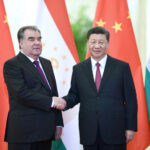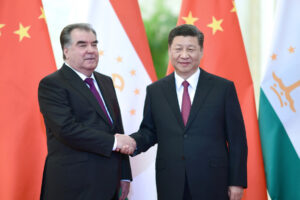Indonesia’s central bank raised its key interest rates on Thursday at a slower pace compared to previous months, after inflation eased in South East Asia’s biggest economy.
Bank Indonesia raised the policy rate by 25 basis points from 5.25 percent to 5.50 percent, in line with analysts’ expectations.
The latest hike means that Bank Indonesia has increased its interest rates by 200 basis points this year, joining other central banks around the world in monetary tightening to fight soaring inflation.
Global inflation has been driven in part by Russia’s invasion of Ukraine, which stoked worldwide energy and food price rises, as well as supply chain snarls and pandemic-related economic issues.
Bank Indonesia Governor Perry Warjiyo said the “measured” rate hike was implemented to ensure that inflation and expectations around it continue to decline.
Headline inflation was recorded at 5.45 percent year-on-year in November, lower than the central bank’s previous estimate.
Warjiyo said Bank Indonesia will continue to calibrate its monetary policy next year to ensure economic stability amid an expected deterioration in the global economy in 2023.
The central bank chief said Indonesia’s economy was still well-placed thanks to strong domestic demand and commodity exports, while some economic sectors including manufacturing as well as wholesale and retail commerce also showed robust growth.
“With such developments, the 2022 economic growth was expected to remain in the upward bias of Bank Indonesia’s projection of between 4.5 percent and 5.3 percent,” Warjiyo said.
He projected that Indonesia’s gross domestic product would grow at 4.9 percent next year — a slower pace than in 2022 — amid the expected slowdown in the global economy.
The World Bank projects Indonesia’s GDP will expand by 5.2 percent this year, and slow down to 4.8 percent next year.
The central bank will likely scale down its tightening, an economist said.
“We expect a further 50 basis points of total hikes over the coming months before the central bank brings its tightening cycle to a close in early 2023,” said Gareth Leather, senior Asia economist from Capital Economics.















